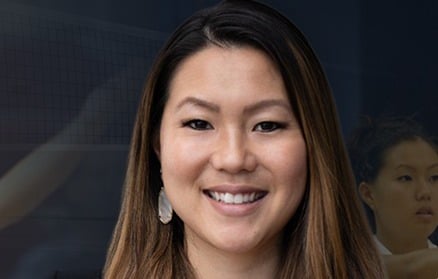


Managing ourselves comes before leading others, and we can’t manage what we don’t understand, particularly if what we don’t understand is ourselves.
It’s the people who do the hard work of answering these questions honestly and fully who begin to shift how they approach understanding and leading others. For many people, it can be an emotional journey as they more fully discover how the people and events in their lives have shaped their perspective and influenced them as individuals and as leaders. Some are surprised to see how they have been living someone else’s values or following a set of “shoulds” that have little resonance with their definition of success. And others find they are living in alignment with their values or perhaps need only a few small adjustments to get in alignment.
These six questions won’t give you “the answer,” but answering the questions fully and honestly can help you array the information in such a way that you can pull out important insights to better understand yourself.
1. Who, and whose thinking, has shaped you as an individual? This includes parents, siblings, extended family, friends, lovers, enemies, teachers, coworkers and even strangers. It includes people who helped you and people who hurt you. It can also include ideas from history, philosophy, religion, your community, favorite childhood stories, books you’ve read, classes you’ve taken, movies you’ve watched, talks you’ve heard and conversations you’ve had. How have these people and ideas influenced your life and the way you lead?
2. What situations and events have helped shape your perspective? Think about situations and events from your childhood, college days, early career, family life, travel and lucky (and unlucky) accidents. How have these situations and events influenced your life and the way you lead?
3. What does success look like for you? How would you define success for your professional life? For your personal life? Are any parts of your definitions of success related to some longer, larger sense of purpose? How have these definitions of success influenced your life and the way you lead?
4. What are your core values, and how have these values changed throughout your life? To help you with this question, which many people struggle to answer, there are two approaches that might help. The first is to look at your calendar and see what someone looking at your schedule might infer about your values. For example, what takes priority over other things? The second approach is to think of things that make you angry—often things that make us angry relate to a value that’s been violated or stepped on. Where did these values come from (e.g., parents, religion, schooling, friends, society)? How have your values changed over your lifetime, and what led to these changes? To what extent are you living your values and not someone else’s? How do these values show up in your personal life? In your professional life?
5. To what extent are you aware of—and allow yourself to feel—your emotions? Part of understanding ourselves is being aware of our internal world of emotions and how they can often drive our behaviors. Are you aware of the feeling of anger? How do you behave when you’re angry? How about when you are happy, joyful, sad, jealous, disappointed, fearful or any of the other emotions we all feel? How do people around you respond to you when you’re in any of these states? How have your behaviors when you are feeling these different emotions played out throughout your life? How have these situations influenced your life and the way you lead?
6. What feedback have you received over the years about how your actions and behaviors affect others? This includes feedback you’ve received on a professional level, as well as a personal level, and both positive and negative feedback. Whether you agree with the feedback or disagree with it, the feedback you receive relates to others’ perceptions of your behaviors and is a good indication of the impact you have on others. It gives you a sense for other people’s sense of your strengths and weaknesses, and may sometimes illuminate a blind spot. At a minimum, their feedback is the gift of a perspective or point of view that you may not have previously known. What was the best feedback you’ve ever received? The most painful? The most surprising (either a positive or negative surprise)? Are there themes in the feedback? Are there patterns that relate to your self-understanding and self-management? Is the feedback relatively stable over time, or has it changed during your career? Does any of this feedback perhaps relate to not being aware of your emotions (e.g., anger) and how your behaviors affect others? What insights can you take from any of this feedback about how your behaviors are seen by others?
In addition to helping us understand how our behaviors affect others and the way they respond to us, self-reflection can have other significant benefits. For example, connecting with our values and better understanding who and whose thinking has shaped us, as well as our definition of success, can inform important career choices, as the next two stories demonstrate.
Your differences are what allow you to lead differently than others. The best way for each of us to lead is from our clarity about who we are and what we want to do with our time on Earth. As Coco Chanel once said, “To be irreplaceable, you must be different.” You are different from others, and that is a good thing. Understanding that we are different from others helps us make decisions that are right for us, as opposed to those that sound right from society’s perspective or anyone else’s. It helps us choose our behaviors and actions more carefully on our way to becoming the leader we want to be. It’s from understanding ourselves that we gain clarity about who we are and who we want to become. From this clarity we gain the courage to become the person we want to be, the leader only we can be. You are unique, and that is a good thing.
Excerpted from Manage Yourself to Lead Others: Why Great Leadership Begins with Self-Understanding. Copyright © 2025 by Margaret C. Andrews. Available from Basic Venture, an imprint of Hachette Book Group, Inc.



0

1:00 - 5:00 pm
Over 70% of Executives Surveyed Agree: Many Strategic Planning Efforts Lack Systematic Approach Tips for Enhancing Your Strategic Planning Process
Executives expressed frustration with their current strategic planning process. Issues include:
Steve Rutan and Denise Harrison have put together an afternoon workshop that will provide the tools you need to address these concerns. They have worked with hundreds of executives to develop a systematic approach that will enable your team to make better decisions during strategic planning. Steve and Denise will walk you through exercises for prioritizing your lists and steps that will reset and reinvigorate your process. This will be a hands-on workshop that will enable you to think about your business as you use the tools that are being presented. If you are ready for a Strategic Planning tune-up, select this workshop in your registration form. The additional fee of $695 will be added to your total.

2:00 - 5:00 pm
Female leaders face the same issues all leaders do, but they often face additional challenges too. In this peer session, we will facilitate a discussion of best practices and how to overcome common barriers to help women leaders be more effective within and outside their organizations.
Limited space available.

10:30 - 5:00 pm
General’s Retreat at Hermitage Golf Course
Sponsored by UBS
General’s Retreat, built in 1986 with architect Gary Roger Baird, has been voted the “Best Golf Course in Nashville” and is a “must play” when visiting the Nashville, Tennessee area. With the beautiful setting along the Cumberland River, golfers of all capabilities will thoroughly enjoy the golf, scenery and hospitality.
The golf outing fee includes transportation to and from the hotel, greens/cart fees, use of practice facilities, and boxed lunch. The bus will leave the hotel at 10:30 am for a noon shotgun start and return to the hotel after the cocktail reception following the completion of the round.